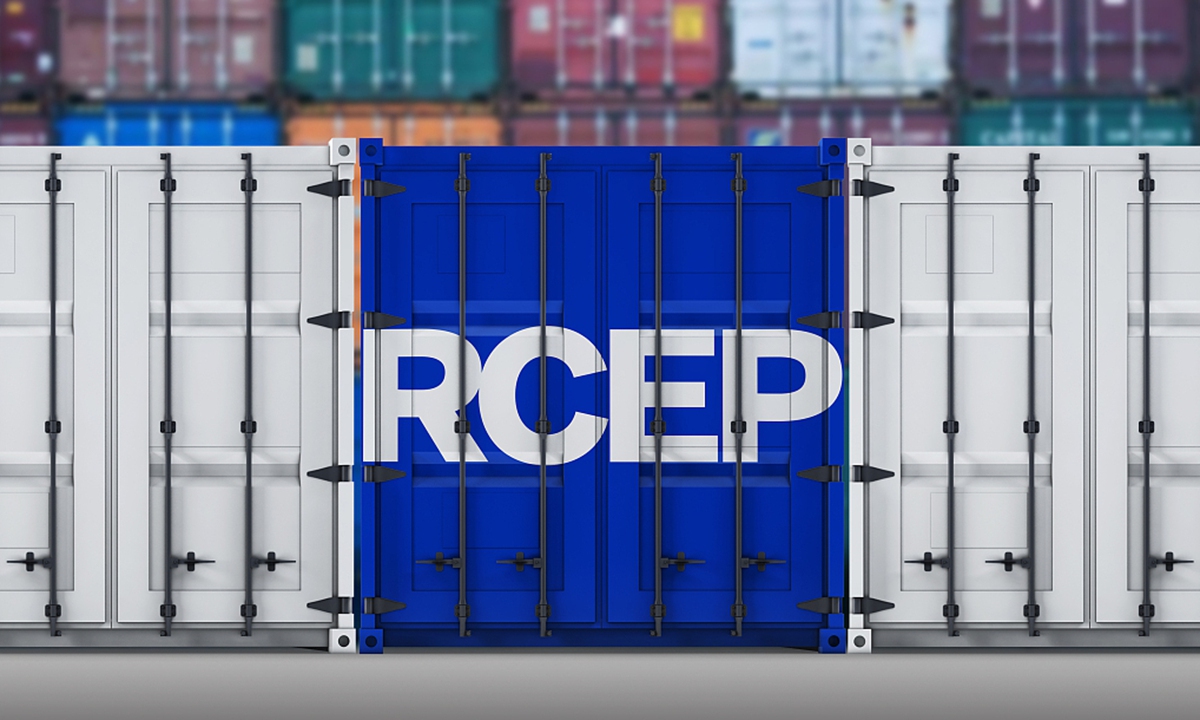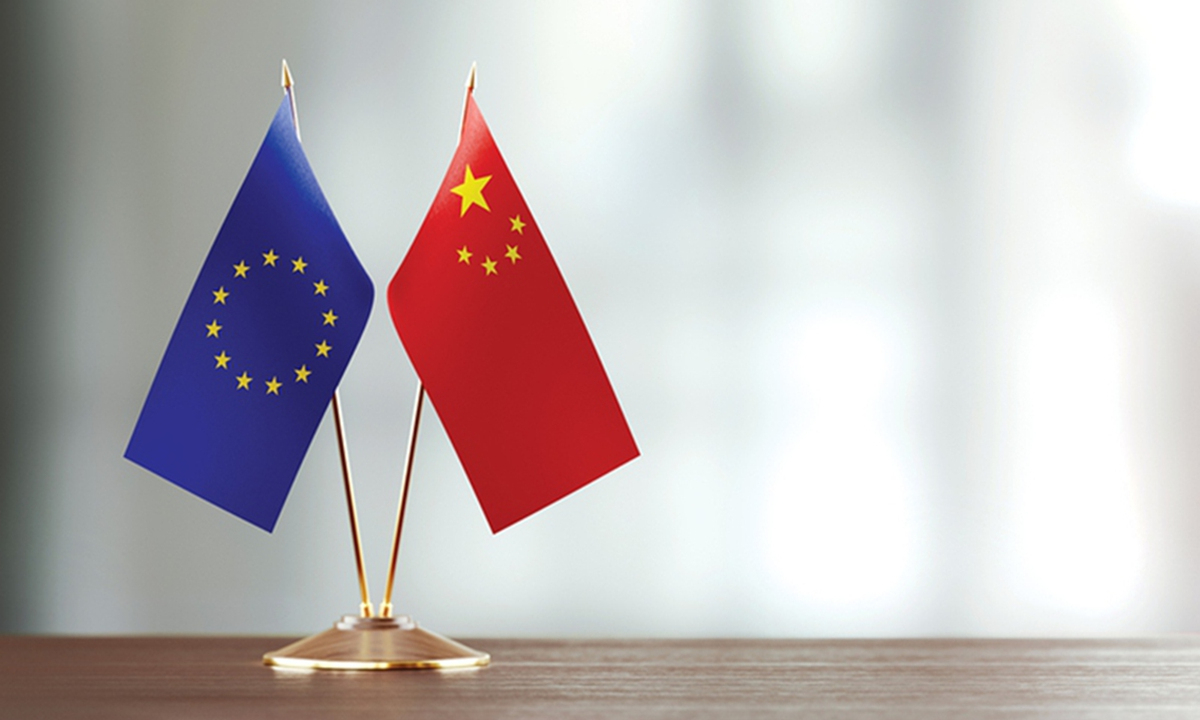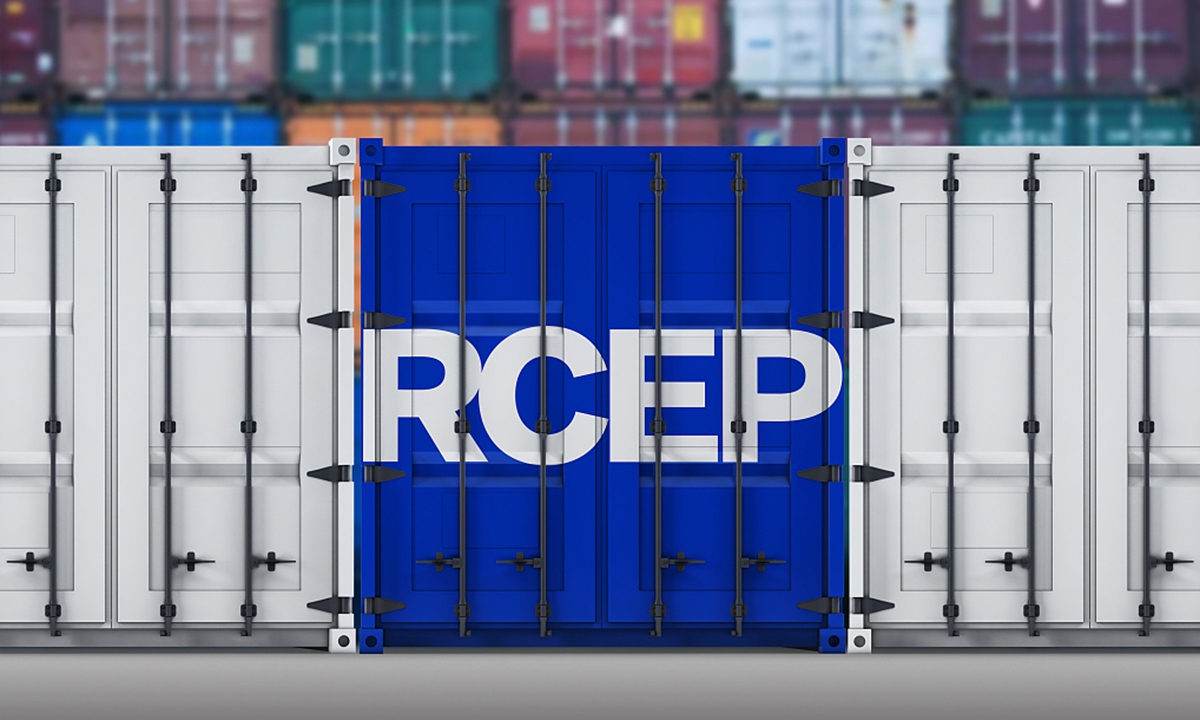
RCEP Photo:VCG
The Regional Comprehensive Economic Partnership (RCEP), the world's largest free trade agreement (FTA), has promoted broader, higher-level and deeper regional cooperation and openness, while bolstering confidence in shoring up the global economic recovery after its full implementation for one year, China's Ministry of Commerce (MOFCOM) said on Thursday.
The RCEP is the world's largest FTA in terms of population and economic scale, and a milestone for economic integration in the Asia-Pacific region, He Yadong, spokesperson of MOFCOM, said at a regular press briefing on Thursday.
The implementation of the RCEP revitalized regional economic growth. In 2023, trade within the RCEP region rose to $5.6 trillion, slightly surpassing the level of 2021, the year before the agreement took effect.
The trade pact has enhanced industry and supply chain cooperation within member countries. The region also attracted $234.1 billion in greenfield investments in 2023, a surge of 29.8 percent year-on-year. That figure was also 2.2 times that of 2021.
The RCEP has also bolstered China's high-level opening-up, according to He.
For example, China's trade with the other 14 RCEP members grew 5.3 percent from 2021 to 12.6 trillion yuan ($1.77 trillion) in 2023. Investment cooperation also heated up, with China's non-financial direct investment inflows into RCEP countries climbing 26 percent year-on-year to $18.06 billion in 2023, outperforming China's global average growth rate in investment by 14 percentage points.
China will leverage its co-chair role in the RCEP this year to lead the high-quality implementation of the trade pact and boost the agreement's regional impact, according to He.
Domestically, the MOFCOM will continue to support enterprises in utilizing the RCEP and other FTA preferential policies. "We have released 28 practices for high-quality RCEP implementation, focusing on strengthening top design, facilitating goods trade, promoting services trade and investment cooperation, as well as creating a good business environment. These practices serve as a reference for local use to enhance agreement utilization effect and benefit enterprises," He said.
The first year of the RCEP has shown it delivers immediate economic benefits and lays a solid foundation for regional integration. While initial results are promising, its long-term potential could be even greater and a gradual process, Xiang Haoyu, a research fellow at the China Institute of International Studies, told the Global Times on Thursday.
It also lays a solid foundation for regional economic integration, showcasing the importance of free trade and multilateralism in boosting the global economic recovery and global growth.
"Amid global economic challenges from the pandemic and geopolitical crises, the RCEP has become a stabilizer of the Asia-Pacific and global economies, not only enhancing the resilience of the Asia-Pacific but also countering unilateralism and protectionism," Xiang noted.
"To maximize the RCEP's benefits, it is essential to further reduce tariffs, eliminate non-tariff barriers and harmonize trade rules. Streamlining customs procedures, liberalizing investments, improving the digital infrastructure and ensuring secure data flows are also critical. Strengthening cooperation in e-commerce, smart cities, big data and cloud computing will foster a more inclusive and sustainable regional framework," Xiang said.
Global Times


